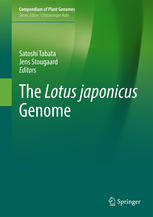

Most ebook files are in PDF format, so you can easily read them using various software such as Foxit Reader or directly on the Google Chrome browser.
Some ebook files are released by publishers in other formats such as .awz, .mobi, .epub, .fb2, etc. You may need to install specific software to read these formats on mobile/PC, such as Calibre.
Please read the tutorial at this link: https://ebookbell.com/faq
We offer FREE conversion to the popular formats you request; however, this may take some time. Therefore, right after payment, please email us, and we will try to provide the service as quickly as possible.
For some exceptional file formats or broken links (if any), please refrain from opening any disputes. Instead, email us first, and we will try to assist within a maximum of 6 hours.
EbookBell Team

4.1
20 reviewsThis book provides insights into some of the key achievements made in the study of Lotus japonicus (birdsfoot trefoil), as well as a timely overview of topics that are pertinent for future developments in legume genomics. Key topics covered include endosymbiosis, development, hormone regulation, carbon/nitrogen and secondary metabolism, as well as advances made in high-throughput genomic and genetic approaches.
Research focusing on model plants has underpinned the recent growth in plant genomics and genetics and provided a basis for investigations of major crop species. In the legume family Fabaceae, groundbreaking genetic and genomic research has established a significant body of knowledge on Lotus japonicus, which was adopted as a model species more than 20 years ago. The diverse nature of legumes means that such research has a wide potential and agricultural impact, for example, on the world’s protein production.